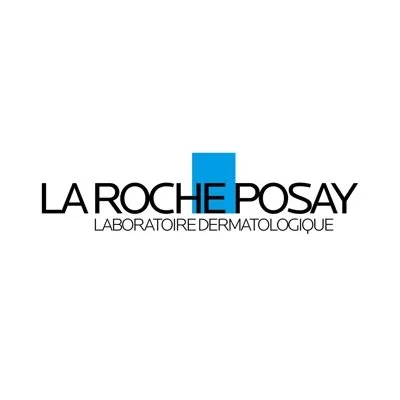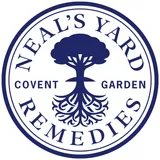
La Roche‑Posay
Learn more about our scoring →
About La Roche‑Posay
La Roche-Posay positions itself as a dermatologist-backed skincare authority, leveraging French thermal spring water formulations specifically developed for sensitive and acne-prone skin conditions. The brand's scientific approach to skincare development has established significant market presence in therapeutic beauty, with widespread availability through major retail channels and dermatology practices.
As part of L'Oréal's extensive beauty portfolio, La Roche-Posay benefits from substantial corporate sustainability investments and research infrastructure while maintaining its specialized focus on dermatological solutions. The brand's sustainability performance reflects both inherited corporate commitments and category-specific challenges within therapeutic skincare formulation.
The brand demonstrates particular strength in climate action through science-based emissions targets and renewable energy commitments, alongside established ethical sourcing programs for key ingredients. However, sustainability integration varies across product categories, with opportunities for enhanced transparency in chemical policies and expanded sustainable practices.
The Good Stuff
Where La Roche‑Posay appears to be making meaningful progress. We cross-referenced these findings with multiple independent sources.
Science-Based Climate Leadership
Independently verified emissions reduction targets with 50% product-level greenhouse gas reductions by 2030 and comprehensive renewable energy transition for manufacturing operations
Verified Ethical Sourcing Programs
Transparent supply chain partnerships include Fair Labor Association collaboration on jasmine sourcing and sustainable shea butter procurement with supplier audit verification
Specialized Ingredient Safety Standards
Comprehensive ingredient transparency through detailed safety guides specifically developed for sensitive skin conditions with dermatological testing protocols
The Reality Check
Areas where the publicly available data gets murky, incomplete, or concerning. We're transparent about the limitations of our analysis.
Limited Green Chemistry Innovation
Chemical responsibility policies remain primarily at corporate level with no brand-specific PFAS phase-out timeline or dedicated green chemistry formulation standards disclosed
Plastic-Dependent Packaging Systems
Packaging materials remain predominantly plastic-based with limited closed-loop recycling programs and minimal consumer take-back infrastructure currently available
Unverified Animal Welfare Claims
Animal testing policies rely on parent company statements without independent cruelty-free certification, and product formulations include animal-derived ingredients across multiple lines
La Roche‑Posay's
Impact Aura
A visual representation of La Roche‑Posay's positive impact
across People, Planet and Animals
Each colored area represents the brand's performance in that sustainability category. The size and intensity of each blob corresponds to their score—larger, more vibrant areas indicate stronger performance.
Our Research
Key findings from our comprehensive analysis of La Roche‑Posay's sustainability performance across People, Planet & Animals impact.
Positive Impact on People
Research Highlights
- Comprehensive Ingredient & Safety Guide details active formulations and safety assessments specifically for sensitive skin conditions
- Parent company L'Oréal maintains supplier code of conduct prohibiting forced labor and child labor across supply chains
- Ethical sourcing partnerships include Fair Labor Association collaboration on jasmine procurement with verified supplier audits
- Social impact commitment includes €80M funding allocation supporting 100,000 disadvantaged individuals by 2030
- Marketing integrity demonstrates compliance with regulatory standards and maintains policies against misleading advertising
Evidence Strength
Strong documentation for ingredient safety and social impact commitments, with group-level labor policies providing framework oversight
Positive Impact on Planet
Research Highlights
- Science-based climate targets approved by independent verification with 50% product-level greenhouse gas reduction commitments by 2030
- Renewable energy transition includes 100% clean energy targets for operated manufacturing sites by 2025
- Packaging sustainability roadmap targets 100% recycled plastic materials with select refill options currently available
- Water stewardship initiatives encompass recycling programs and wastewater quality improvements at facility level
- Chemical responsibility policies remain primarily at corporate level with limited brand-specific green chemistry disclosure
Evidence Strength
Excellent verification for climate commitments and renewable energy initiatives, moderate documentation for packaging and chemical policies
Positive Impact on Animals
Research Highlights
- Parent company L'Oréal states no internal animal testing since 1989, though brand lacks independent cruelty-free certification
- Sustainable sourcing protocols verified for shea butter procurement from Burkina Faso with ethical supply chain oversight
- Ethical jasmine sourcing program includes supplier audits and fair compensation frameworks in partnership with international organizations
- Vegan formulation status varies across product lines with some animal-derived ingredients including shea butter and glycerin
- Wildlife conservation partnerships and habitat restoration funding programs show limited public disclosure
Evidence Strength
Moderate verification for sourcing initiatives and parent company policies, gaps in independent cruelty-free certification and conservation funding transparency
See the Receipts
We don't just make claims—here are the official certifications that prove La Roche‑Posay's sustainability commitments.
Frequently Asked Questions
Is La Roche-Posay sustainable?
La Roche-Posay demonstrates strong performance in climate action with science-based emissions targets and renewable energy commitments through parent company L'Oréal's sustainability framework. The brand shows particular strength in ethical sourcing and ingredient safety standards, though opportunities exist for enhanced chemical transparency and verified animal welfare practices.
Is La Roche-Posay cruelty-free?
La Roche-Posay's cruelty-free status is unclear. While parent company L'Oréal states it has not conducted internal animal testing since 1989, the brand is not certified by major cruelty-free organizations like Leaping Bunny or PETA, and may be sold in markets where animal testing is required by law.
Does La Roche-Posay use clean ingredients?
La Roche-Posay provides comprehensive ingredient transparency through their Ingredient & Safety Guide, detailing active formulations and safety assessments for sensitive skin. The brand operates under L'Oréal's chemical exclusion policies, though brand-specific green chemistry standards require enhanced disclosure.
Is La Roche-Posay environmentally friendly?
The brand demonstrates environmental leadership through independently verified climate targets and renewable energy commitments. Packaging sustainability initiatives include recycled plastic goals and select refill options, though comprehensive circular economy programs remain in development stages.
Does La Roche-Posay support ethical sourcing?
La Roche-Posay maintains verified ethical sourcing programs including Fair Labor Association partnerships for jasmine procurement and sustainable shea butter sourcing from Burkina Faso. Supply chain oversight includes supplier audits and fair compensation frameworks with international organization collaboration.
Is La Roche-Posay carbon neutral?
While not currently carbon neutral, La Roche-Posay operates under science-based climate targets with 50% product-level greenhouse gas reduction commitments by 2030. The brand's climate strategy includes 100% renewable energy transitions for manufacturing operations and comprehensive emissions reporting.
Are La Roche-Posay products vegan?
La Roche-Posay's product portfolio includes both vegan and non-vegan formulations, with some products containing animal-derived ingredients like shea butter and glycerin. The brand has not established a comprehensive vegan certification program or complete plant-based product line.
Ready to Shop La Roche‑Posay?
Find La Roche‑Posay products through our trusted retail partners
The Bottom Line
La Roche-Posay demonstrates solid sustainability performance through science-based climate commitments and established ethical sourcing programs, though opportunities for enhanced chemical transparency and verified animal welfare practices reflect the evolving expectations within therapeutic skincare sustainability.
Compare Brands
See how La Roche‑Posay stacks up against similar brands


